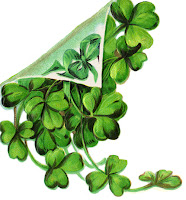Minimal Day
| Time | Period | Minutes |
| 8:15 – 9:15 | 1st Period | 60 minutes |
| 9:20 – 10:20 | 2nd Period/Announcements | 60 minutes |
| 10:20 – 10:45 | First Lunch | 25 minutes |
| 10:50 – 11:50 | 3rd Period | 60 minutes |
| 10:25 – 11:25 | 3rd Period | 60 minutes |
| 11:25 – 11:50 | Second Lunch | 25 minutes |
| 11:55 – 12:55 | 4th Period | 60 minutes |
Today's Activities :
Pick up your composition book and the half-sheet tape-in.
Self-Starter:
1. iWriteRight: What do you notice?
What do you notice about these sentences? Write about three things you notice about them. What you notice could be about individual sentences or about all of them. Begin at least three sentences with “I notice that. . . .” (Your “noticings” should be about the sentences themselves, not where they’re from or who wrote them.)
1) Harold's eyes were glued to the floor. He couldn't look. [Harold is in the principal's office.]
--Dav Pilkey, Captain Underpants and the Preposterous Plight of the Potty People (2006)
2) Spelda tousled her son’s thick, black hair.
-- Paul Stewart and Chris Riddle, The Edge Chronicles: Beyond the Deep Woods (1999)
3) Mac’s office is located in the East Wing boys’ bathroom, fourth stall from the high window.
-- Chris Rylander, The Fourth Stall
_________________________________
2. Finish and hand in your appositive book.
1) Harold's eyes were glued to the floor. He couldn't look. [Harold is in the principal's office.]
-- Paul Stewart and Chris Riddle, The Edge Chronicles: Beyond the Deep Woods (1999)
3) Mac’s office is located in the East Wing boys’ bathroom, fourth stall from the high window.
-- Chris Rylander, The Fourth Stall
Sample sentences:
Subject , appositive, verb.
_________________________________________
Two Different Things: Apostrophe [ ' ] and Appositive
Apostrophes, those punctuation marks we use to show possession or contraction, shouldn't be confused with appositives which rename the subject of the sentence.
___________________________________
3. Argument
Can you solve a case with Evidence, Warrant, and Claim?
Can you solve a case with Evidence, Warrant, and Claim?
Basic Argument
| ||
Evidence
(Proof)
|
Rule
(Warrant)
|
Conclusion
(Claim)
|
Today's case: Case: Slip or Trip?
"Evidence includes concrete, observable information; personal testimony; written documents; and material objects and their condition or appearance."
"Evidence includes concrete, observable information; personal testimony; written documents; and material objects and their condition or appearance."
-- George Hillocks, Jr. in Teaching Argument Writing: Grades 6-12
____________________________________________
3. Book Groups
a. Have one member of your group pick up your books and your group booklet.
b. Finish summarizing and discussing for last time, if needed. Catch up any members who were absent last time.
c. Read individually. -- Use sticky notes to take notes or mark places you want to discuss.
d. When instructed by the teacher, discuss what you've read, and work on the booklet as a group. (Today you will continue to summarize.)
Fill out your reading log for this book, and record the page where you left off on your reading log.
KEEP UNUSED STICKY NOTES IN YOUR COMPOSITION BOOK.
If you'd like to, you may bring non-messy treats for your group.
b. Finish summarizing and discussing for last time, if needed. Catch up any members who were absent last time.
c. Read individually. -- Use sticky notes to take notes or mark places you want to discuss.
d. When instructed by the teacher, discuss what you've read, and work on the booklet as a group. (Today you will continue to summarize.)
Fill out your reading log for this book, and record the page where you left off on your reading log.
KEEP UNUSED STICKY NOTES IN YOUR COMPOSITION BOOK.
If you need more, ask the teacher.
e. Have one group member return books neatly to the shelves and turn in the booklet to the wire basket.If you'd like to, you may bring non-messy treats for your group.
